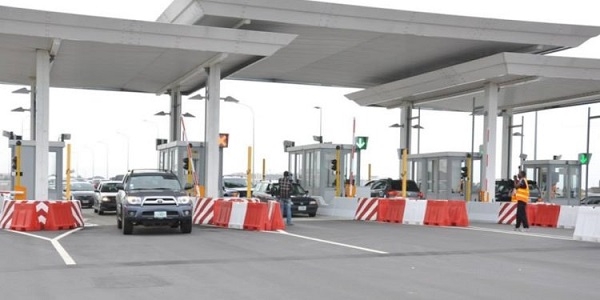How Much It Costs to Raise a Child in Every State - Business Insider
In today's economy, luxuries like buying a mega-mansion, a sports car, or a Birkin bag might be cheaper than raising a child.
In step with rising food and housing costs, parents across America are facing the financial challenges associated with having a child.
A recent LendingTree study found that, on average, it costs US parents $297,674 to raise a child over 18 years, and they spend an average of 22.6% of their income on child-rearing costs each year.
While the costs vary by state, one factor remains constant: the rising cost of childcare during the workday, which is often the largest expense related to having a child.
"Our data from last year showed that in 45 states and DC, if you have two kids, what you pay for childcare on average exceeds [your] mortgage," said Sandra Bishop, the senior director of research for Child Care Aware of America, a national nonprofit organization focused on helping families across the country access affordable childcare.
Between LendingTree's 2023 and 2025 studies, the average annual cost of childcare rose by 51.8%, from $11,752 to $17,836.
Bishop says this isn't a new trend. Since Childcare Aware began tracking costs in 2000, the cost of childcare has remained "a major expense for families," she told Business Insider. On average, the price of childcare has increased every year that Childcare Aware has tracked it.
"[About] 70 to 80% of what it costs to provide childcare is staff costs," Bishop said. "As the cost of living goes up, so does the cost of care."
LendingTree's study, which was released in March, looked at the impact of raising a young child in categories like rent, food, and transportation by measuring the difference between costs for a two-person household and a two-person household with a child.
For day care and apparel costs, researchers examined the average annual costs that families face in each state.
To calculate the estimated costs of raising a child in every state, LendingTree used data from sources including the US Census Bureau's American Community Survey, the US Bureau of Labor Statistics' consumer expenditure surveys, Child Care Aware of America's Price of Care report, and the IRS, among others.
Here's the annual cost of raising a young child in each state (and Washington, DC) and how each state ranks compared to the rest of the country, with 51 being the cheapest and 1 being the most expensive.
49 (49th most expensive in the US and Washington, DC)
$17,870
$8,771
$1,897
In Alabama, parents spend an average of 17.1% of their income to raise a child, which is the seventh lowest percentage among all states.
The state also ranked third in the lowest day care expenses.
18
$24,921
$11,760
$2,342
Alaska parents face some of the highest added costs in the country when factoring a child into their expenses. The state ranks third for extra rent and food costs each year at $4,620 and $2,342, respectively, and second for transportation costs at $3,462.
However, health insurance premiums are lower than in other states; Alaska ranks the sixth-lowest in that category, with parents spending an additional $2,486 on average each year.
20
$24,354
$14,040
$1,807
Parents in Arizona might see smaller additional rent and food costs when factoring in a child, with the state ranking seventh lowest in both. Still, added costs for health insurance premiums are among the highest in the nation, ranking third, with parents spending an annual average of $4,929.
48
$18,642
$8,869
$1,735
Arkansas ranked lowest for the added cost of children's apparel to parents' expenses. The state also ranked among the lowest five for food and childcare costs.
5
$30,059
$19,547
$2,023
While parenting in California comes with a high price tag in some areas, parents also experience some areas of relief compared to other states. Per the LendingTree report, there are relatively low additional rent costs when raising a child compared to other states, and higher tax credits.
But parents in California face the highest apparel costs in the country, as well as the second-highest health insurance premiums.
The state also has the 10-highest average day care costs, according to the report.
10
$28,922
$19,573
$2,035
Colorado is ranked among the top 10 most expensive states to raise a child. Parents may face higher day care costs than in other states, with the state ranking ninth highest in the country.
However, added transportation costs are more affordable in the state, with Colorado ranking sixth-lowest.
11
$28,899
$17,888
$2,111
Connecticut parents face higher costs in several areas, with the state ranking 10th highest for additional rent when factoring in a child, and eighth highest for food.
However, parents also spend a lower portion of their income on raising a child each year: 17.6% on average, the eighth-lowest in the country.
23
$23,804
$14,995
$1,951
Delaware falls near the middle of the pack for the overall costs of raising a child in the US. Additional rent costs are among the lowest compared to other states, but additional expenses for food, transportation, and day care fall in the middle of all states.
9
$29,186
$25,480
$2,378
Parents in the District of Columbia saw the biggest decrease in child-rearing costs since the 2023 study.
DC has the lowest added rent cost, at a negative difference of $4,284, where parents on average pay less than their childless peers. DC parents also face the lowest added transportation costs in the country at $1,919, and spend the lowest portion of income on raising a child at 14%.
However, DC also has the highest day care and added health insurance premiums costs in the country, and faces the second-highest added food costs, per LendingTree.
26
$23,241
$12,639
$2,054
While Florida parents might save on transportation, as the state ranks third-lowest with parents spending an added $2,754, they also face higher health insurance premiums, ranking seventh highest in that category.
45
$19,162
$11,066
$1,921
The study found that Georgia parents spend the second-lowest portion of their income on raising a child. Some factors that contribute to this are the comparatively low added costs for rent and health insurance premiums — the state ranked within the 10 lowest in both categories.
1
$36,472
$22,585
$2,481
Hawaii is the most expensive state for raising a child in 2025, leading the list by over $3,000 in total annual costs.
Parents in the state face the highest added food costs in the country, the second-highest added rent costs, and the third-highest transportation and day care costs.
On average, parents in the state spend 25.4% of their income on the costs of raising a child, the highest share out of all states.
37
$21,797
$10,108
$2,040
Parents in Idaho might face some higher costs despite having the ninth-lowest childcare costs in the country. The state ranked seventh highest for both added rent and transportation costs each year, coming in at $2,364 and $3,260, respectively.
21
$24,343
$16,373
$1,965
Illinois' added rent costs for parents are relatively low; parents spend $276 more on average each year compared to their childless peers, which is the fifth lowest amount among all states.
Added transportation costs are also among the lowest in the country, ranking fourth lowest as parents spend an added $2,826 annually. Parents also spend a smaller portion of their income on raising a child than in other states, ranking ninth lowest at 17.9%.
24
$23,786
$13,736
$1,731
Although parents in Indiana spend less on food — the state ranks fourth lowest at an average added cost of $1,731 each year — they also spend a larger share of their income on raising a child, coming in at 21.4%, the fifth-highest rate in the country.
36
$21,811
$12,168
$1,873
Iowa parents have some of the lowest health insurance premium added costs, with the state ranking ninth lowest in the country at an average of $2,568 annually.
19
$24,528
$15,071
$1,900
Kansas parents spend a higher portion of their income on raising a child than peers in other states, with the state ranking ninth highest nationwide. Parents spend an average of 20.8% on the added costs of raising a child.
46
$19,149
$9,685
$1,704
Kentucky has the lowest added cost for a child's food when compared to every other state. Parents in Kentucky also have the sixth-lowest day care expenses in the country, per LendingTree's report.
39
$21,206
$10,101
$1,855
While Louisiana parents have some of the lowest day care costs in the country, coming in at eighth-lowest, they also spend some of the highest percentages of their income on costs associated with raising children. They spend 20.6% of their paychecks on added costs.
32
$22,061
$11,960
$2,043
Families in Maine might see one of the bigger boosts from tax credits. The credits help parents in the state save an average of $300 each year, ranking fifth-highest in the country.
4
$31,601
$19,906
$2,078
Ranked the fourth most expensive state to raise a child in, Maryland parents face higher costs across several categories, with the state ranking sixth highest for both day care costs and the added costs in rent, and 10th-highest for added food and health insurance premiums costs.
2
$33,004
$24,005
$2,193
Ranked the most expensive state for raising a child in the continental US, Massachusetts parents face some of the highest food and childcare costs, with the state ranking fourth-highest for added food costs and second-highest for day care costs.
Even with the high price tag, parents in the state don't see a big difference in their added rent prices compared to childless peers, only paying $84 more on average, according to the report.
34
$21,881
$12,667
$1,833
When compared to other states, Michigan has the eighth-lowest added food costs associated with raising a child.
6
$29,891
$20,129
$2,075
Minnesota parents face some of the highest day care costs, ranking fifth highest in the country.
They also spend a large portion of their income on raising children, spending an average of 21.3% of their income on the added costs of childrearing, the sixth highest share in the country.
However, they also benefit from tax credits, which on average save them $343 annually, the third-highest in the country.
51
$16,490
$8,186
$1,783
Mississippi is the cheapest state to raise a child in 2025, having the second-lowest average day care costs and falling in the top 10 for cheapest health insurance premiums, rent, transportation, and food costs.
On average, Mississippi parents spend 17.9% of their income on raising a child each year.
27
$23,201
$12,907
$1,883
Parents in Missouri have lower added health insurance premiums than parents in other states. The state ranks 10th-lowest, with parents spending an annual average of $2,649.
35
$21,864
$11,700
$1,918
Lacking sufficient childcare options for the number of children, the state of Montana is considered a "childcare desert," according to a January 2024 report by the Montana Department of Labor and Industry. On average, Montana parents spend $11,700 on childcare each year, according to the LendingTree study.
28
$23,154
$13,000
$1,883
Out of all metrics, rent can be the biggest expense for parents in Nebraska when compared to other states. Parents spend an extra $2,340, on average, annually on their rent when raising a child.
29
$23,063
$13,024
$1,894
Nevada, one of the most urban states in the country, is also considered a childcare desert, according to a 2023 report by the Nevada Governor's Office of Workforce Innovation, due to the lack of options and the high demand for available centers. Parents in the state pay an average of $13,024 on daycare annually, according to the LendingTree study.
12
$28,338
$17,250
$2,031
New Hampshire parents face higher housing and transportation costs than in other states, ranking fifth highest for both rent and transportation.
Still, the added costs of health insurance premiums are more affordable than in other states, ranking third lowest.
7
$29,728
$19,634
$2,068
Parents in New Jersey may also encounter higher childcare costs, with the state ranking seventh highest among all states, but transportation costs are also more affordable, ranking 10th lowest.
30
$22,792
$13,521
$1,834
While New Mexico offers some of the lowest average added costs for transportation and food, parents in the state still spend a large portion of their income on raising children, with 22.8% of their paychecks going toward the added costs of raising a child, the second highest in the country.
8
$29,327
$19,584
$2,141
While parents in New York face some of the highest child-rearing costs, ranking sixth and eighth highest for food and childcare, respectively, they also have the second-lowest transportation added costs, falling only behind Washington, DC.
42
$20,818
$12,251
$1,908
Parents in North Carolina have the most stable prices for their child-rearing expenses, the study found. Between the 2023 and 2025 studies, the cost of raising a child over the course of 18 years in the state changed the least, going from $217,182 in 2023 to $215,461 in 2025.
17
$25,834
$10,758
$1,875
North Dakota had the second-biggest jump in total added costs from the 2023 study, up 44%. The state also has the highest added rent costs, at $5,496, and ranks ninth for transportation, as parents spend an additional $3,237.
40
$21,186
$12,351
$1,867
Ohio's low total costs for raising a child each year are, in part, due to the low added costs of health insurance premiums, which rank eighth lowest in the country.
43
$20,673
$10,065
$1,836
Oklahoma parents enjoy the 10th and seventh lowest food and day care costs, respectively, but they also spend the 10th highest added costs on transportation, with children adding an average of $3,228 to their annual transportation expenses.
16
$26,107
$17,680
$2,048
Oregon saw one of the biggest total cost decreases since the 2023 study. Transportation added costs are also more affordable in Oregon than in other states, with the state ranking eighth lowest at $2,915. The state also has the lowest health insurance premiums out of all states in the country, with parents spending an additional $1,978.
25
$23,270
$14,483
$1,991
Parents in Pennsylvania might spend less on additional transportation costs than in other states — the state ranks ninth-lowest in the country, as parents spend an average of $2,918.
15
$26,141
$16,899
$2,127
Added food costs for parents in Rhode Island are higher than in other states — seventh highest in the country — while the added costs of transportation are more affordable than in other states, ranking fifth lowest.
50
$17,699
$9,048
$1,842
South Carolina parents spent the third-lowest portion of their income on child-rearing expenses, at 16.1%. They also benefit from some of the lowest childcare costs in the nation; the average cost is the fifth lowest among all the states.
47
$18,918
$7,862
$1,941
Average childcare costs in South Dakota are lower than in every other state, according to the study. This contributes to parents spending 16.3% of their income to raise a child, which is the fourth-lowest in the country.
Still, the added transportation costs of having a child in the state ranked as the sixth highest in the nation.
31
$22,693
$11,985
$1,920
While parents in Tennessee have relatively low costs for most factors contributing to the total cost of raising a child, they face higher health insurance premium added costs, spending an average of $4,478 each year, the fifth highest in the country.
41
$20,889
$11,024
$1,711
Texas parents spend some of the lowest added food costs in the nation — the second lowest among all states. They also spend the sixth-lowest portion of their income on raising a child, with 17% of their paychecks going towards child-rearing costs. However, the added costs for health insurance premiums are the eighth highest in the country.
38
$21,784
$11,232
$1,849
Parents in Utah spend an average of 17% of their income on the added costs of a child, one of the lower percentages in the country. Yet transportation is one area where parents in the state might see a significant increase, with the state having the fourth-highest added costs of transportation expenses, coming in at $3,289 a year.
13
$27,690
$17,973
$2,183
Parents in Vermont, which in 2022 was ranked the most rural state in the country according to census data, spend more on food, and also spend a greater share of their income on raising a child.
The state ranked fifth-highest for added food costs, and parents spend the third-highest percentage of their income on raising their children at an average of 21.8%.
However, Vermont parents also benefit from tax credits, which help them save an average of $320 annually, fourth-highest in the country.
14
$26,666
$16,397
$2,013
Parents in Virginia face higher added costs for health insurance premiums than parents in other states, with the state ranking ninth highest at an average of $4,088.
3
$32,418
$20,370
$2,109
Parents in Washington also face higher costs in multiple areas, with the state ranking ninth-highest for added food costs and fourth-highest for childcare costs.
On average, parents in the state spend 21.5% of their income on raising a child, the fourth-highest in the country.
44
$19,957
$10,140
$1,717
While parents in West Virginia enjoy some of the lowest added food, health insurance premium, and day care costs in the nation, they also have the eighth-highest added cost of rent and spend the eighth-highest portion of their income on raising a child, at 21%.
33
$21,930
$13,572
$1,904
Wisconsin parents benefit from having some of the lowest added health insurance premium costs when raising a child, ranking second-lowest in the category and spending an average of $2,231.
22
$24,262
Annual day care costs: $11,075
Food costs: $1,917
Wyoming saw the biggest jump in childrearing costs since LendingTree's 2023 report, with an increase of 47.9%.
Parents in the state face the highest added transportation costs in the country, with an extra $3,502 on average. They also have the fourth-highest added rent costs at $3,660, and spend the seventh-highest share of their income on raising a child: 21%.











